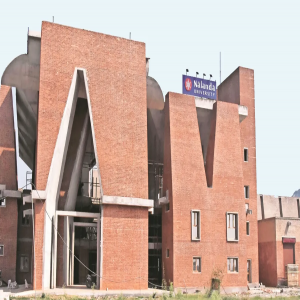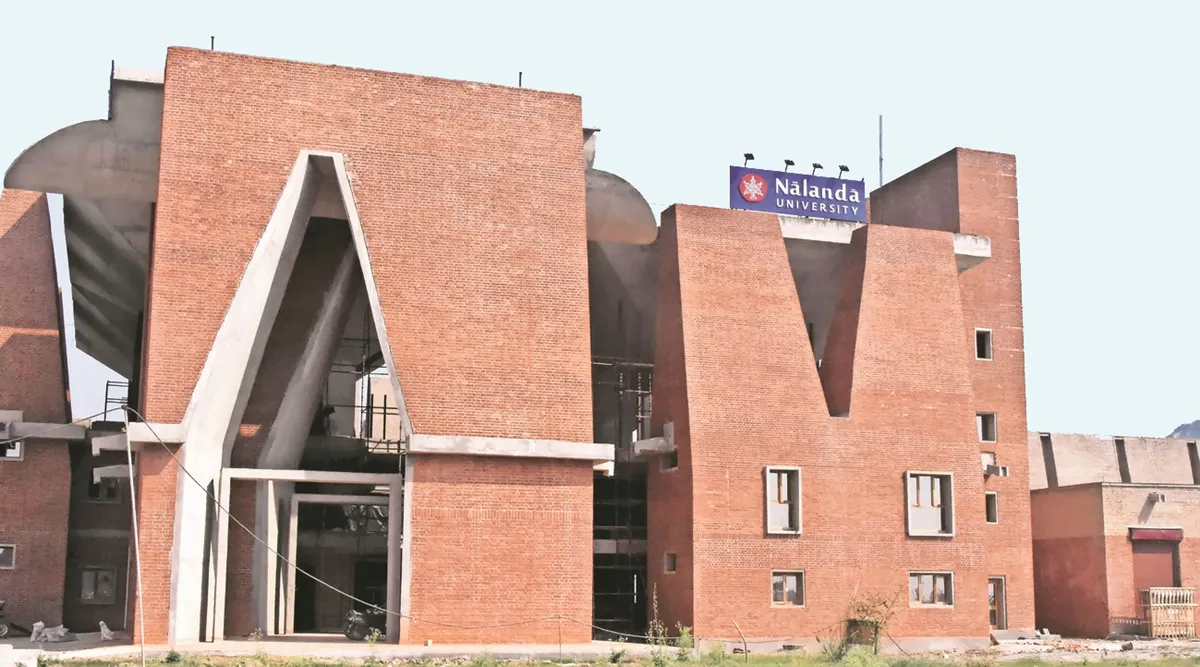
.png) Ram Puniyani
Ram Puniyani

The new campus of Nalanda University was inaugurated formally by Prime Minister Mr Narendra Modi on 19 June 2024, in the presence of the ambassadors of many countries like Myanmar, Sri Lanka, Vietnam, Japan, and Korea, among others. Buddhism spread to most of these countries through the preachers sent by Emperor Ashoka. Initially, the idea of reviving Nalanda as a premier global University was floated by President APJ Abdul Kalam in 2006 and later ratified by the Bihar Assembly and the UPA Government. On the occasion, Modi stated that this University was burnt by foreign invaders in the 12th century.
This perception is an add-on to the other such "social common sense" that Muslim invaders destroyed the Hindu Temples and spread Islam by force. Incidentally, the propagation of these "understandings" began with the introduction of communal historiography by the British and later picked up with immense gusto by Hindu and Muslim communal streams. While the myths propagated by the Muslim League against Hindus played havoc in Pakistan, in India, it was the RSS that played this up. It led to such hate that Sardar Vallabhbhai Patel had to write this about the RSS, "All their speeches were full of communal poison. It was not necessary to spread poison in order to enthuse the Hindus and organise for their protection. As a final result of the poison, the country had to suffer the sacrifice of the invaluable life of Gandhiji."
Modi mouthing that Nalanda was burnt by foreign invaders falls into the same category of falsehoods, which are used to spread hatred against Muslims. Nalanda had a glorious residential university spread out in a large area in Rajgir, Bihar, built by the Guptas in the sixth century. As archaeological evidence shows, it was a Buddhist centre. Primarily, it was for the study of Buddhist philosophy; in addition, Brahminical scriptures, mathematics, logic and health science were also taught. Its traditions of open discussion and logic were so well regarded that it attracted students and scholars from various destinations. It was supported by kings. Later, with the advent of the Pala and Sena dynasties, the patronage it received was reduced and withdrawn. The focus was redirected to newer universities, particularly Odantpuri and Vikramshila. This was the beginning of Nalanda's decline.
Who then set fire to the great library housing millions of books, manuscripts and rare collections? While it is misattributed to Khilji, particularly after the British came, no primary source mentions this. Khilji's primary goal was to loot and plunder. En route from Ayodhya to Bengal, he attacked Kila-i-Bihar, thinking this was a wealthy fort. On the way, he plundered wealth and killed people. Nalanda was far from the route, and he had no reason to attack a university.
Most of the primary sources related to the history of that time do not mention Khilji coming to Nalanda. Tabakat-a-Nasiri, written by Minhaj-e-Siraj, mentions no such incident. Two Tibetan scholars, Dharmaswamin and Sumpa, keen students of Indian history, particularly related to Buddhism, do not mention Khilji in the context of Nalanda's destruction. Taranath, another well-known Buddhist scholar from Tibet, does not mention such a fact. Nor do the Indian historians Jadunath Sarkar and R C Majumdar endorse Nalanda being destroyed by Khilji.
Interestingly, important Buddhist structures like Ajanta, Ellora, and Sanchi stupa were not the subject of the ire of 'invaders'!
Prof DN Jha, the authority on Ancient Indian History, in his essay, 'Responding to a Communalist' (Against the Grain, Manohar 2020), gives an excellent summary of the relevant part of the book 'History of Buddhism in India' by Tibetan monk Taranath. "During the consecration ceremony of the temple built by Kakutsiddha at Nalendra [Nalanda], the young naughty shamans threw slops at tirthika beggars (Brahmins, added)…Angered by this one of them went for arranging livelihood and the other sat in the deep pit and engaged himself in surya sadhana)…He performed a sacrifice and scattered the charmed ashes all around which resulted in the miraculous fire."
In "The Antiquarian Remains in Bihar," DR Patil says that this incident refers to the actual scuffle between Buddhist and Brahmanical mendicants. The latter performed a sacrifice to propitiate the Sun God and scattered the live embers and ashes from the sacrificial pit across the Buddhist temples, which led to the burning of the great collection of books at that time. We also need to register that this was a period when attacks against Buddhism increased in the wake of the resurgence of Brahmanism.
Immediately after Ashoka's reign, the notion of equality made inroads following the spread of Buddhism. Brahminical rituals declined, leading to a great deal of dissatisfaction among Brahmins. General Pushyamitra Shunga murdered Brihadratha Maurya, the king, and became the ruler, unleashing an anti-Buddhist persecution.
All reliable sources point to the fact that Brahmins burned the library as revenge. The invasion of Bakhtiyar Khilji fit right into the general Islamophobic propaganda and, at the same time, hid the true story of the persecution of Buddhism during that period.
We need to preserve a spirit of free debate and logic as the underlying foundation of education from the Buddhist period. In the present, our universities are being stifled by the imposition of a culture of subordination in the matters of academia. Knowledge cannot be imbibed or developed under such conditions. Lessons from this tragic history of the struggle between Buddhism and Brahmanism will be crucial to the development of academia in the country.